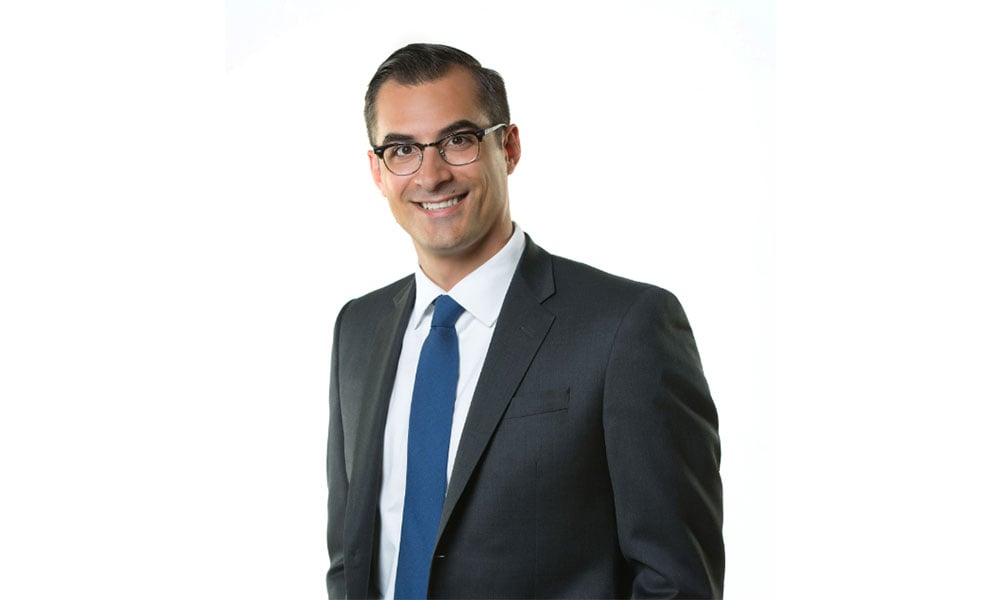
Leading personal injury lawyer discusses what to expect when suing gig economy app companies

Sponsored article
When pursuing motor vehicle collisions involving Uber, Lyft, Foodora and other gig economy app companies, personal injury lawyers need to understand all the potential insurance policies that could be in play and how they impact your client’s ability to recover damages arising from collisions.
Nick Todorovic, an associate at McLeish Orlando LLP, told Law Times about some of the structures Uber and other gig economy app companies have set up to protect themselves from injured third parties, including passengers, other drivers, pedestrians and cyclists. He explained how personal injury lawyers can equip themselves to deal with gig economy app companies by tackling the core premise of their defence head-on. Gig economy app companies allege that they are not employers of the users making money with their apps and therefore have no liability if they injure someone.
For example, he explained that Uber drivers do go through a vetting process, certain vehicles are excluded, and the ratings and complaint systems built into the app show that Uber exercises quality controls over its drivers. Access to app information could provide valuable information about the driver and their actions while driving. There would also be information about the driver’s past complaints, ratings, and incidents to better demonstrate their competence as a driver. He likened it to a hypothetical case where a commercial trucker struck a pedestrian. In such a case, Todorovic could obtain that driver’s employee records from their employer and build his case with that onside. He wants the same recourse with Uber.
In further support of this position, Foodora couriers have recently won the right to unionize in a landmark Ontario Labour Relations Board (OLRB) decision, dated February 25, 2020. After the OLRB carefully examined the relationship between couriers and Foodora, it concluded that Foodora couriers are dependent contractors and more closely resemble employees rather than independent contractors, and, therefore, must be treated as such under the Labour Relations Act.
Rideshare apps such as Uber and Lyft are likely more exposed to the same outcome as a result of the Foodora decision. In fact, the class action of Heller v Uber will be heard by the Supreme Court of Canada sometime this year to decide whether the court will enforce a mandatory arbitration clause that forces Uber driver employment misclassification claims (or any other disputes) to be adjudicated by the International Chamber of Commerce Mediation in the Netherlands as opposed to a court in Ontario. If successful, there is the possibility that Uber and Lyft drivers may be protected under the Employment Standards Act.
Regarding what insurance policies are in play, Uber specifically purchased insurance for their drivers, often offering higher coverage than a driver’s personal insurance, but still below what is typical of fleet policies. Depending on what the driver is doing at any given moment, though, they have a different levels of protection. For example, Uber’s insurance policy provides that while a diver is either on the way to pick up a passenger or transporting a passenger to their destination, they are entitled to third party liability coverage up to $2 million. Whereas, while a driver is logged in and available to accept rides, coverage is limited to $1 million. When they are offline, only their personal insurance is in effect.
Todorovic explained that while the policy limits provide some protection for riders and other third parties, he noted that these policy limits may still be insufficient where there are serious injuries. This is important in cases of an Uber Pool or XL, where a full vehicle of passengers may only have $2 million in policy limits that is shared between them on a pro-rata basis. Cases like that, he said, are unlikely to sufficiently cover every individual.
Overall, Todorovic thinks personal injury lawyers need to get into the specifics of the insurance policies behind gig economy app companies like Uber, Lyft, and Foodora. Each company has very difference policies and, as is the case with Uber, those policies might change based on specific circumstances. He noted that each company posts their insurance policies on their respective websites.
“In the grand scheme of things, these gig economy app companies are designed software to be used on a phone to make things easy. But the fact of the matter is, in a practical sense, it's not easy,” Todorovic said. “There's a lot of implications to it.”